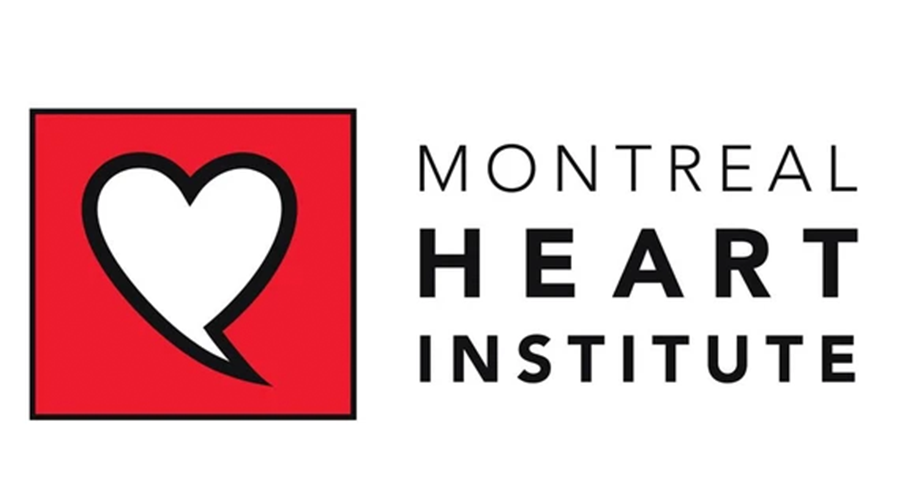National study suggests it’s time to rethink how we treat atrial fibrillation
Montreal, Nov. 07, 2022 (GLOBE NEWSWIRE) — Doctors researchers from the Montreal Heart Institute (MHI) presented new data today at the American Heart Association Late-Breaking Scientific Sessions. Simultaneously published in the New England Journal of Medicine, the data shows that catheter ablation may be better than antiarrhythmic drugs at halting disease progression.
Atrial fibrillation (AF) is the most common cardiac arrhythmia, affecting approximately 1 to 2% of the overall population. Treatment guidelines recommend a trial of drug therapy to maintain a normal atrial heart rhythm before catheter ablation is considered. However, these medications have only limited ability to maintain a normal heart rhythm and have substantial side effects. Catheter ablation is considered superior to antiarrhythmic drugs in maintaining normal (sinus) rhythm and improving quality of life in patients in whom drugs have already failed but it was previously unknown whether earlier ablation could prevent the progression of the disease.
“By treating patients with catheter ablation right from the start, we see fewer people advancing to more persistent, life-threatening forms of atrial fibrillation,” said Dr Jason Andrade, electrophysiologist affiliated with the MHI, assistant Professor of Medicine, Université de Montréal and lead author of the EARLY-AF study.
“This data provides clear evidence that an early invasive therapy may be a more effective method to improve the lives of our patients with atrial fibrillation. In addition, this study further supports the recommendation of pursuing catheter ablation an initial treatment strategy in appropriate patients.,” added Dr Laurent Macle, chief of the electrophysiology service at MHI, and co-chair of the Canadian Cardiovascular Society Atrial Fibrillation guidelines.
The findings, published today in the New England Journal of Medicine, stem from a multi-site clinical trial known as Early Aggressive Intervention for Atrial Fibrillation (EARLY-AF).
For the EARLY-AF trial, the pan-Canadian research team enrolled 303 patients with AF at 18 sites across Canada. Half of the patients were randomly selected to receive antiarrhythmic drugs, while the other half were treated with first-line catheter ablation using cryoablation. All of the patients received an implantable monitoring device that recorded their cardiac activity for a three-year period.
At the end of three-year study, the researchers found that patients in the cryoablation group were 75% less likely to progress to persistent AF compared to patients treated with antiarrhythmic drugs. Over follow-up catheter ablation was associated with a 69% reduction in hospitalization, and fewer serious adverse health events.
In a previous paper, the same team demonstrated that first-line catheter ablation was more effective than antiarrhythmic drugs at reducing the short-term recurrence of atrial fibrillation. The current study demonstrates that the intervention prevents the disease from progressing.
While the condition starts as an isolated electrical disorder, each recurring incident can cause electrical and structural changes in the heart that can lead to longer-lasting events known as persistent AF. These longer-lasting events have been associated with an increased risk of serious health conditions, including stroke and heart failure, as well as higher rates of hospitalization.
“Atrial fibrillation is like a snowball rolling down a hill. With each atrial fibrillation episode there are gradual changes to the heart, which causes the heart rhythm problem to get increasingly worse,” explains Dr. Andrade. “Effective early intervention can help prevent this disease progression, which can be life altering for our patients.”
The researchers say that more effective early interventions would benefit patients as well as the health care system. Currently, the costs associated with the provision of atrial fibrillation-associated are estimated at two and a half per cent of overall annual health care expenditures, and those costs are expected to rise to four per cent within the next two decades.
“The evidence shows increasingly that it’s time to rethink how we approach the treatment of atrial fibrillation. With effective early intervention, we can keep people healthy, happy, and out of hospital, which would be a tremendous benefit for patients and their families, and also our entire health system.”
About the Montreal Heart Institute
Founded in 1954, the Montreal Heart Institute constantly aims for the highest standards of excellence in the cardiovascular field through its leadership in clinical and basic research, ultra-specialized care, professional training, and prevention. It houses the largest research center in Canada, the largest cardiovascular prevention center in the country, and the largest cardiovascular genetics center in Canada. The Institute is affiliated with the Université de Montréal and has more than 2000 employees, including 245 doctors and more than 85 researchers.
Source: Globe Newswire
EARLY-AF Trial — CONCLUSIONS
Among patients receiving initial treatment for symptomatic, paroxysmal atrial fibrillation, there was a significantly lower rate of atrial fibrillation recurrence with catheter cryoballoon ablation than with antiarrhythmic drug therapy, as assessed by continuous cardiac rhythm monitoring. (Funded by the Cardiac Arrhythmia Network of Canada and others; EARLY-AF ClinicalTrials.gov number, NCT02825979. opens in new tab.)
Source: New England Journal of Medicine

